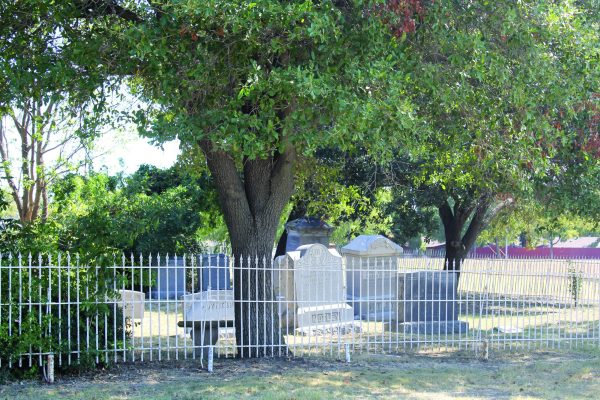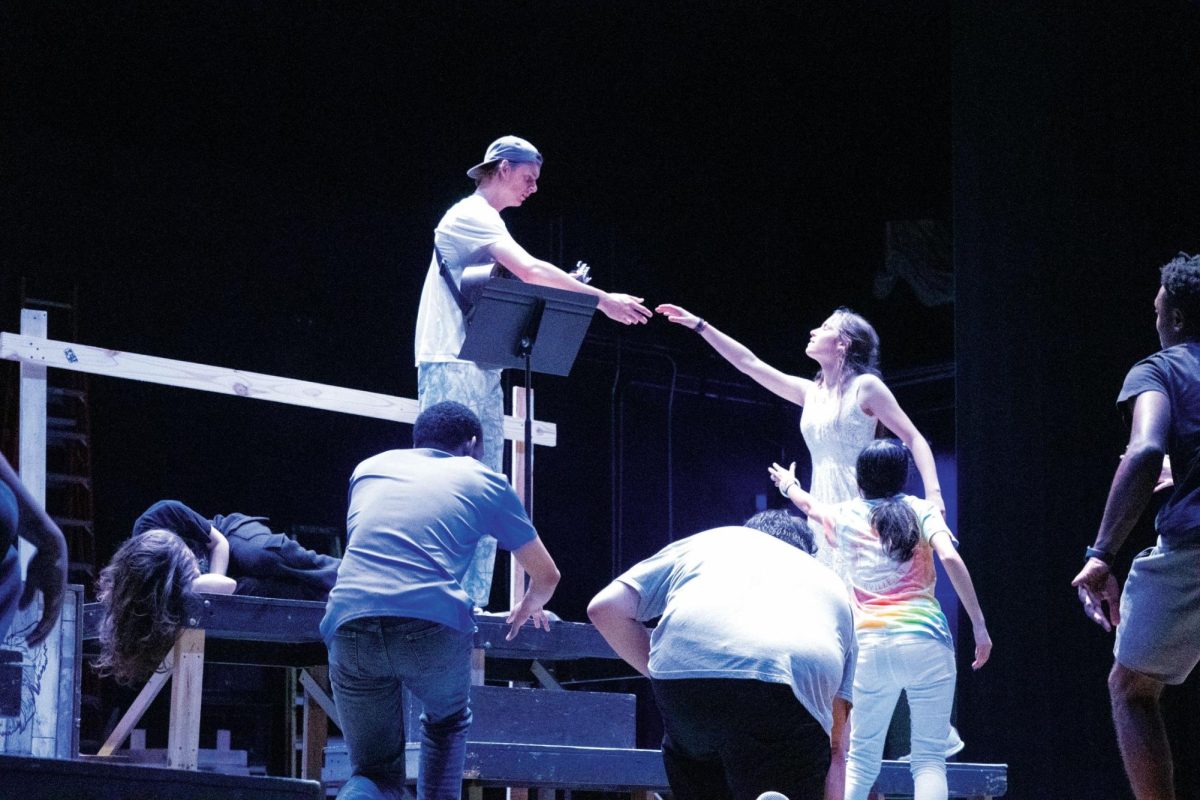The Motley family cemetery is a unique part of Eastfield, where generations of pioneers and their descendants lay at rest beneath brown and gray headstones enclosed by a milky-white iron fence. While the imposing grave of the family’s patriarch, Zachariah Motley, stands tallest amongst his family, there is one grave that stands apart from the rest. That is the grave of Penelope Ann Motley McLain, who is the reason why the cemetery was built.

Penelope was born June 14, 1842, in Allen County, Kentucky, to Zachariah and Mary Lynn Motley. She was the third oldest child among her 10 siblings. Her father, Zachariah, was a successful farmer and businessman who brought his family to Texas during an uncivil time, according to descendant and family historian Carol Riggs Anderson.
Anderson has spent years knitting together her families’ histories through pictures, reunions and court documents. She calls Penelope “Penny” and, though Anderson never met Penny face to face, she has taken the responsibility of passing down her family’s history to heart.
Anderson sits at a family dinner table with tintype photographs of old family members displayed on the walls behind her. She speaks about the wagon train that Zachariah used to bring his family and other settlers from Kentucky to Texas in 1856.
“Penny was 14 years old when Zach brought the family to Texas,” she said. “In those days, if you were old enough to walk outside the wagon you did, so she walked most of the way. She was one tough girl.”
From Bowling Green, Kentucky, the family began their journey to Dallas. The distance is more than 700 miles. Anderson believes that the reason the family traveled so far was that of the turbulent times that the Motleys were living.
“Bleeding Kansas, that’s what brought me here,” Anderson said. “Zach owned a family of slaves, so he figured that it was best to move his family and slaves to Texas where they would be safe.”
Bleeding Kansas was a conflict that started in 1854 between anti- and pro-slavery groups in the newly created state. Violence broke out in the territory, and it became dangerous for owners of slaves who lived in the area.
“Zach didn’t own a lot of slaves,” Anderson said. “There was a father and mother and some children, but I think what happened in Kansas made him fear that people in Kentucky might start up the same thing.”
The total land acquired by Zachariah was more than 6,000 acres and included parts of Mesquite, Garland and Dallas. Penny married J.B. McLain in 1861 at the age of 18 at their home in Breckenridge. McLain was a captain in the Confederate Army and was away from home when Penny gave birth to their son J.B. McLain Jr. in 1862. According to family lore, Zachariah began construction on the family’s farmhouse in early August the next year when Penny and her son fell ill. According to Anderson, their deaths were the result of an epidemic such as typhoid or pneumonia. “In those days illnesses turned into epidemics quickly because people didn’t have the medicine that we have today,” Anderson said.
Penny was buried in December of 1863. She was 21 years old and the first of the family to be buried in the cemetery. A few months later, J.B. Jr. passed away.
Both Penny and her son are examples of the hard and fragile life that pioneers lived. J.B. McLain Sr. survived the war only to find out that his wife and son had passed away. He sold his land to Zachariah and according to Anderson, “went home.”
There is only one surviving picture of Penny and her husband. She stands next to a sitting J.B. with her hand placed on the shoulder of his chair and her eyes gazing off into the distance.
Like the picture, Penny’s life was brief like a snapshot of a much larger story. And yet 155 years after Penny’s death, the Motleys and their extended family are continuing the tradition of being buried in this cemetery.







